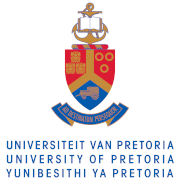Entanglement, Mobility and Improvisation: Culture and Arts in Contemporary African Urbanism and its Hinterlands
January 2019 – December 2025
PRINCIPAL INVESTIGATORS:
Professor James Ogude, Professor Akosua Adomako Ampofo (University of Ghana), Professor Dominica Dipio (Makerere University) and Professor Polo Moji (University of Cape Town)
In 2019, the Centre for the Advancement of Scholarship embarked on a five-year project titled Entanglement, Mobility and Improvisation: Culture and Arts in Contemporary African Urbanism and its Hinterlands. The project is funded by the Andrew W. Mellon Foundation, and collaborates with the University of Cape Town, the University of Ghana and Makerere University.
The project is expected to run for five years, starting in January 2019 and concluding in December 2023. The project will focus on mentoring young scholars, including PhD students, post-doctoral fellows, and early career academics from the four universities involved. It seeks to combine the models of post-graduate supervision, summer institutes, and workshops – activities that will be spread across the four universities during the five-year duration of the project.
Conceptually, the project seeks to move beyond the current scholarship on African cities that tends to focus on African cities as little islands separated from their hinterlands – the rural other. Working through various cultural formats and artistic genres, the project hopes to surface the defining features of these urban spaces and their rural hinterlands. The cities identified for this study are Kampala, Pretoria, Johannesburg, Cape Town, Accra, Nairobi and Lagos. These cities share African roots, but are also distinctive, because of their shared colonial/apartheid histories, their multiplicity of old and invented languages, their innumerable waves of immigrants from their rural hinterlands but also some whose origins readily violate national boundaries, and who continue to bring labour, culture and new creative economies; and the sometimes tragic structures of oppression that these cities have undergone. The project aims to examine how looking at the cities from the perspectives of the rural and specifically through the mobility of people, ideas, cultural forms and arts between the cities and the rural spaces, we can witness the transformation of marginal and precarious lives into lives that exceed constraining structures emanating from the political and social hierarchies embedded in these cities.
Through in-depth case studies of each of these cities and their arts, our goal is to help the young participants in the project to grasp, both intellectually and viscerally, the intricate workings of urban spaces and their hinterlands in Africa. By examining music, literature, visual arts, festivals, leisure sites, and films, among others, participants will learn, through ethnographical explorations and the unique lens of individual artists, how African urban identities are recast in each city, particularly in the face of historical and contemporary flows of people, cultural capital and goods that move across borders that are often seen as inviolable.
RESEARCH TEAM
 |
Professor James Ogude is a Senior Research Fellow, a Professor of African Literature and Cultures and the former Director of the Centre for the Advancement of Scholarship. His research interests include, postcolonial literatures, popular cultures in Africa and more recently, Ubuntu and African ecologies. He is the author of Ngugi’s Novels and African History. He has edited nine books and one anthology of African stories. His most recent edited volumes include, Ubuntu and the Reconstitution of Community (Indiana UP, 2019) and Environmental Humanities of Extraction in Africa: Poetics and Politics of Exploitation (Routledge, 2023). He is A2 rated scientist by the NRF. |
 |
Dr Rebecca Fasselt is a senior lecturer in the Department of English at the University of Pretoria. Her research examines literatures of intra-African migration and diaspora. She is co editor of The Routledge Companion to Migration Literature (2024) and The Short Story in South Africa: Contemporary Trends and Perspectives (2022). Dr Fasselt is a C2-rated scientist with the NRF.
|
PROJECT NEWS















 Virtual Campus
Virtual Campus
Get Social With Us
Download the UP Mobile App